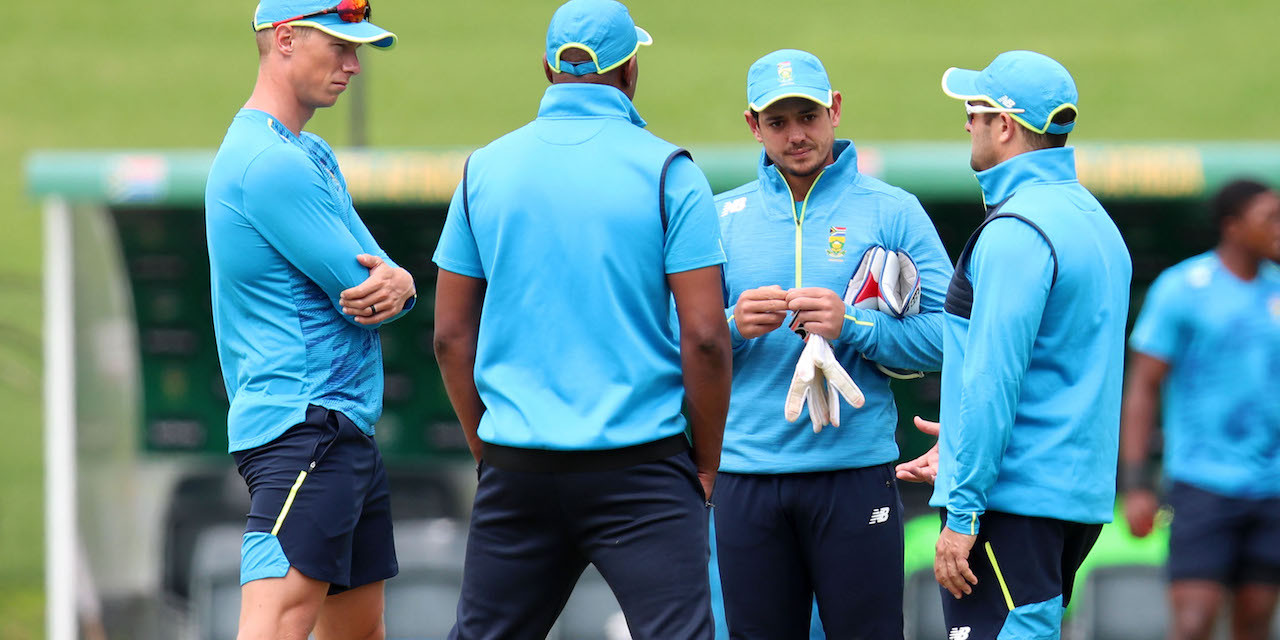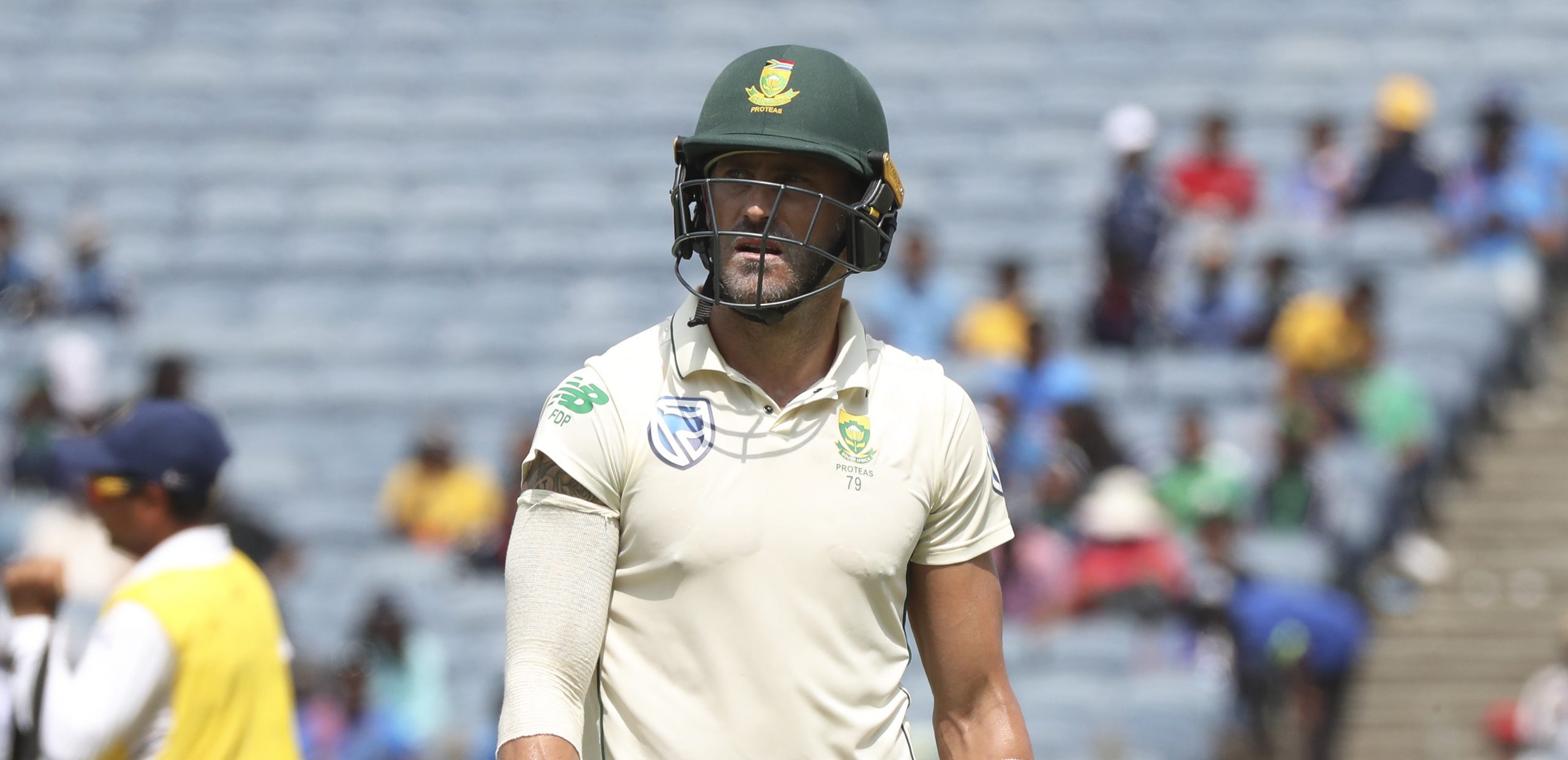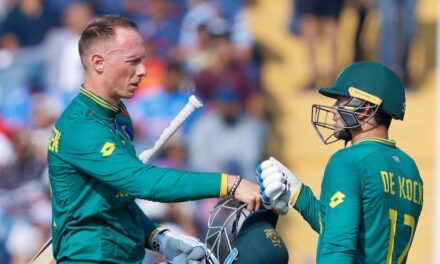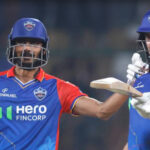After reaching a 1-1 series tie in the ODIs against Ireland, it was time to assess the situation at hand. The dust has settled, and there were several talking points to address for Proteas head coach Mark Boucher.
The second game was particularly a worrying sign since it was the first time SA lost to Ireland, and the overall approach was far too defensive.
“Honestly, we just weren’t there the other day,” said Boucher. “Our level of awareness and intensity was down. I’m not trying to make any kind of excuse, since we’re representing our country over here.”
“Normally we get a little extra time to soak in the win (alluding to the WI tour). We didn’t quite have the time to settle down, and we had to start packing again to enter another bubble in a matter of days. As a result, the energy was on the lower side. We’ve had a talk and we’ve been on tour for nearly two months.”
Going to the positives, SA did well to learn from their mistakes in the previous game and put together a much stronger performance with the bat. At times the bowling was inconsistent and the fielding struggled, too – after Ireland were 6 down for less than 100, Curtis Campher and Simi Singh were able to add 104 runs between them.
“To keep it simple, if we apply ourselves well, we will be able to win games on a regular basis. Unfortunately, we kind of took our foot off the gas [when Ireland were 90-odd for 6] but that is something to work on going forward.”
The star of the show today, undoubtedly, was opening batter Janneman Malan, who scored a personal-best unbeaten 177. Ever since he’s entered the ODI setup, he’s made sure to convert each occasion when he crossed 50 to an even more meaningful score. It’s safe to say that the Proteas have found the answer in the search of a strong opening batter, given the wavering consistency of top-order batters in ODIs in recent times.
“Yeah, Janneman’s been waiting on the sidelines for a while. He got a few chances when a few of our guys weren’t available during the more intense COVID times. It’s great to see that he’s done so well. Now we’re in a situation that whenever any new guy comes into the team, he’s showing that the talent depth in the country is increasing. We rested Quinton last game, and Malan stepped up. He’s learned plenty from batting with Quinton, and that’s definitely giving the selectors a good headache.”
As much as cricket is important, inter-bubble travel and mental strength are tantamount. When asked about finding chances to relax amid the strict bubble restrictions, Boucher indicated that there are plenty of options for where players and support staff can unwind.
“First of all, there’s plenty of space for guys to express themselves. Being locked down in a room can be difficult. Fortunately, there’s a nice spot on the beach to take a walk, plus we have a chance to play some golf at a nearby course. Most importantly, we must be there for people that are feeling physically, mentally, and emotionally drained.”
Going back to the previously alluded selection headache, Boucher had an addendum. It’s been a common motif when talking about whom all the best Proteas XI should comprise. It’s professional sport at the end of the day, and contentious decisions are bound to be made.
“All these guys are superb cricketers. There’s no doubt that quality players are coming through. Guys are putting pressure on each other, and that motivates everyone to compete. There will be someone or the other who may miss out, and as a result, that keeps everyone on their toes.”
With regards to the hosts, Boucher further emphasized that at no stage did they underestimate Ireland’s strength as an ODI team.
“Ireland is a very good team. We’ve seen and heard about them beat England on a few occasions, and they’re well aware of their home conditions. We learned that the hard way last game. It was a bad day, but it’s not abnormal for a cricket team.”
With the World Cup coming up in a few months, there inevitably were questions about how the preparation is going and what the plans will entail since there aren’t too many international games remaining before the big tournament gets underway.
“There are spots to play for, and that’s a bonus for us as a management team. It was nice that the conditions here helped spin, so it gave us the opportunity to provide more game time to the spinners [Maharaj and Shamsi]. It’s been a stern test of character.”
Last, but not least, there’s been the lingering question about how the Proteas can win a world event. Boucher’s answer was rather simple and clear-cut.
“Now if we get to the final stage of the WC, we must know how to take down tough sides. We will have to play our best cricket, and there will be opportunities in every group-stage game. Our pool looks challenging.”
In conclusion, it was a favourable turn of events for the Proteas, who emphatically averted a series loss and played a much better all-round game. They’ll have to bring a greater level of intensity into the T20 series. Every game counts, and it’s a fickle format – anything can happen. Readiness, presence of mind, and more decisive play will be the key going forward.











